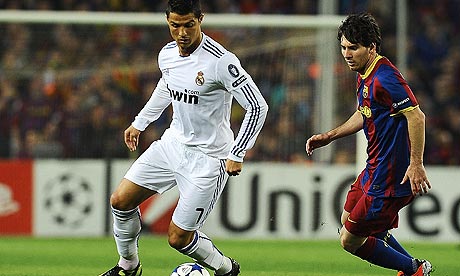
How would clubs go about doing their own deals?
They could either employ a well-established rights agency – such as Sportfive or Kentaro – to sell the rights on their behalf or try to do it themselves. The former would involve giving a cut to those selling the rights but might give them the certainty of a minimum guarantee, whereas the latter would enable them to forge relationships that could be leveraged in other ways. Alternatively, a single rights agency or broadcaster could try to do deals with each of the Premier League clubs and sell them as a package overseas. In that scenario, the biggest clubs would expect more money than the smallest.
Who would produce the coverage?
At the moment, all 380 Premier League matches beamed overseas are produced by the IMG-owned outfit TWI. It is likely clubs would want this arrangement – or a similar one to it – to continue to ensure consistent production standards.
What rights would they be looking to sell?
Premier League clubs already have access to certain limited rights outside their live matches, including training-ground footage, reserve games and delayed coverage of matches. They could lobby to be handed control of their home matches for sale overseas. In Spain, La Liga clubs effectively have control of their home and away fixtures.
Wouldn't it be more complicated?
Yes, unless a single agency or broadcaster took on the rights for every club's home matches. Could different clubs sell their matches to different broadcasters in the same markets, for example? In order to follow the narrative of the season, a single broadcaster would need a critical mass of games. It is likely clubs would recognise this and come up with a means of packaging their rights.
How does it work in Spain?
Chaotically – but lucratively for the big two. All the rights have effectively been pooled directly or indirectly (via a local rights holder) with a single broadcaster, Mediapro, which then makes its way around the clubs doing single deals with each. Real Madrid and Barcelona get the biggest slice because they have most clout. A study last year by Sport+Markt showed the pair earned 19 times more from TV than the smallest clubs in La Liga. A deal is on the table to centralise the sale of the rights – but with the current inequalities enshrined in the arrangement.
Who would buy the overseas rights?
Potential customers include traditional free-to-air and pay-TV broadcasters, but could also include online TV offerings such as YouTube, which has experimented with sporting events such as the Cricket World Cup and this week signed a deal with Manchester City. A media group with a global footprint, such as News Corp or Disney, could also seek to hoover up the rights.
Could clubs launch their own overseas channels?
An alternative vision of the future would be for clubs to build on their existing inhouse operations and launch overseas versions of their own channels that could be retailed to broadcasters around the world or directly over the internet. Manchester United envision a future where a dozen anchors jostle for position on the Old Trafford pitch before kick-off, broadcasting to their home markets.
Why might clubs be better off staying with a collective deal?
Aside from the fact that the current set-up helps maintain competitive balance, Richard Scudamore, the Premier League's chief executive, will argue more value is generated by selling the rights as a package and that its brand value is as compelling as those of its constituent parts. Not only that but it can drive economies of scale and ensure quality and consistency by using a single production partner. It also allows them to market the rights strategically and guard against short-termism, ensuring deals in nascent markets in India and China have a free-to-air element.
What would Liverpool need to change the structure of the deal?
The support of 14 of the 20 Premier League clubs at its annual shareholders meeting next summer.

